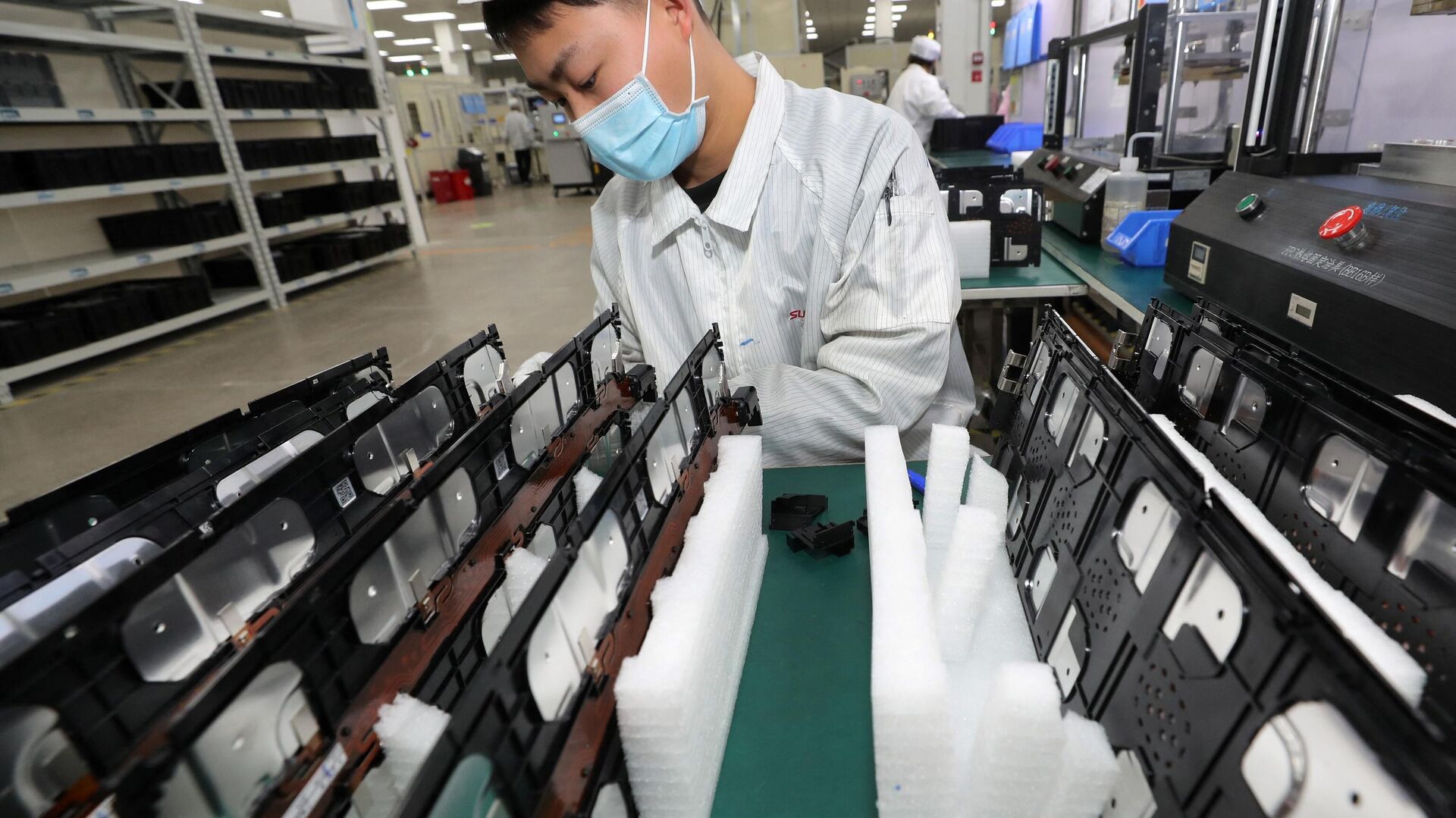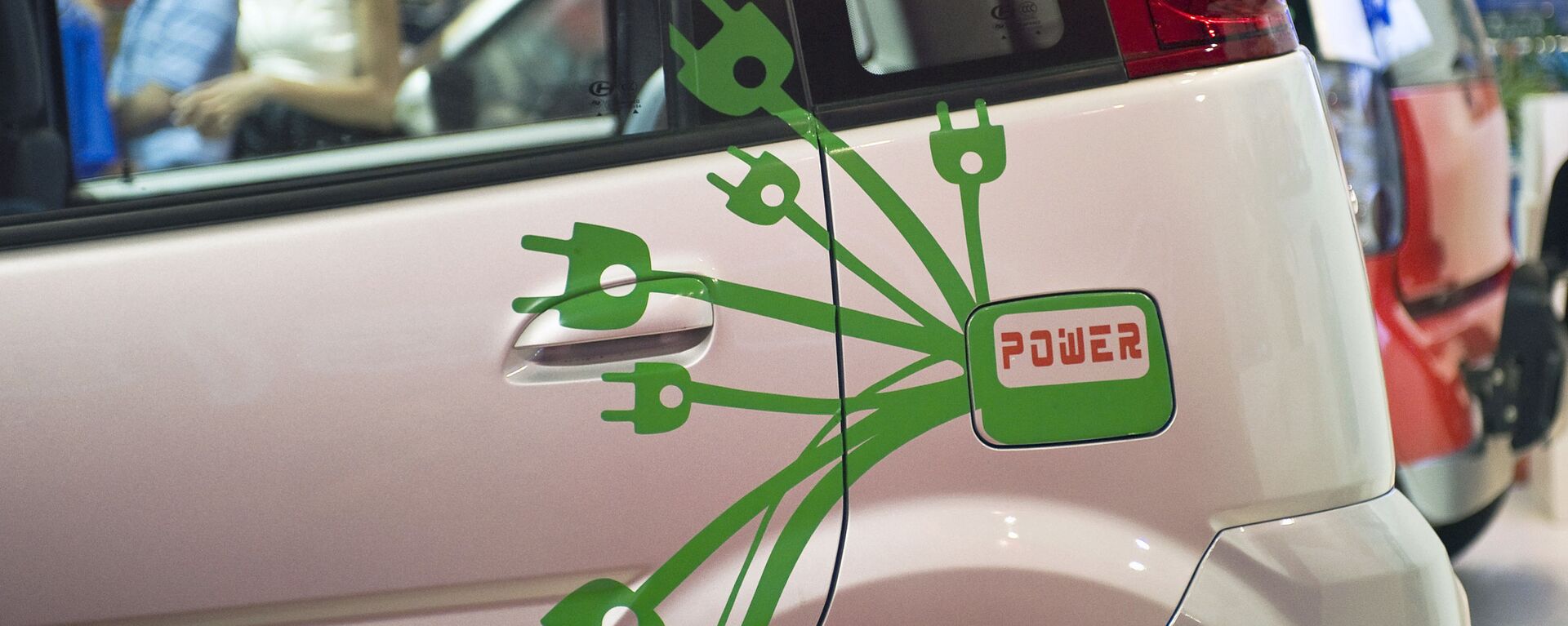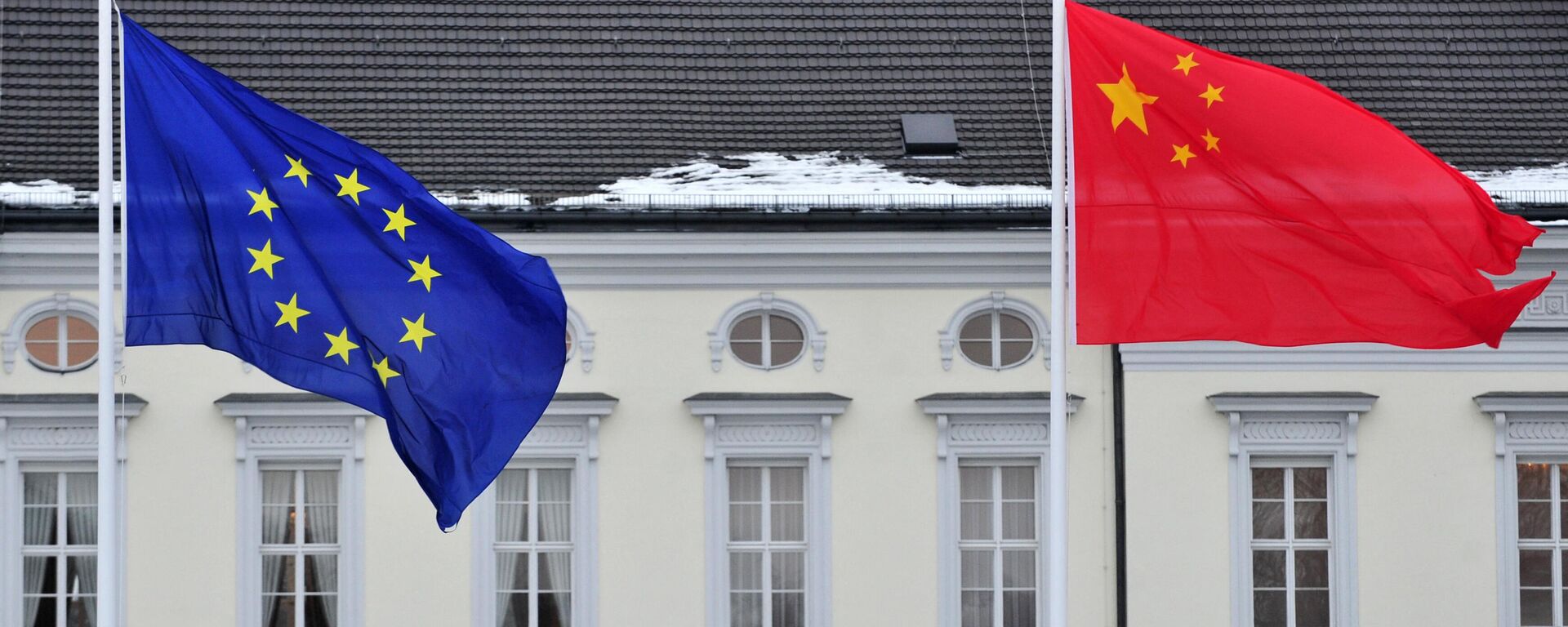Europe’s Energy ‘Ecosystem’ Could Get Hooked on China’s Batteries by 2030

© AFP 2023 / STR
Subscribe
The European Commission trotted out what it called a "de-risking" strategy, ostensibly in pursuit of developing a resilient economy for the 27-member bloc that would be less reliant on China when it comes to critical technology.
Concerns are on the rise that the European Union could find itself deeply “reliant” on China for lithium-ion batteries and fuel cells - crucial for electric vehicles - by 2030, warns a paper prepared for the bloc’s leaders and cited in a media report.
The document, prepared by the Spanish presidency of the EU, draws parallels with how the EU was dependent on Russian energy before it opted to “wean itself” off this reliance as part of the sanctions campaign unleashed against Moscow after the Ukraine crisis flared up. Despite cutting itself off from Russia’s abundant and affordable energy as "retribution" over the Ukraine crisis “backfired”, leaving the EU plagued by economic problems, the paper makes the case for urgent measures to slash reliance on China.
Before the Ukraine crisis and the sanctions unleashed against Moscow, Europe received approximately 40 percent of its gas from Russia. After the European Union opted to cut the Russian energy cord last year in a bid to try to "punish" Moscow for its special military operation in Ukraine, ordinary Europeans were left facing an unprecedented spike in utility prices and inflation, while governments and businesses faced the looming the danger of deindustrialization.
The 27-member bloc’s leaders, set to meet on October 5 and focus on the continent’s economic security, are ostensibly going to look into such measures, while reportedly emphasizing the need to diversify more towards Latin America and African countries. Renewable energy sources, such as wind or solar, are of an intermittent nature, the paper recalls, which will require the European continent to have at its disposal, a means of storing energy if it hopes to reach its set goal of net-zero carbon dioxide emissions by 2050.
"This will skyrocket our demand for lithium-ion batteries, fuel cells and electrolysers, which is expected to multiply between 10 and 30 times in the coming years," the document is cited as saying.
The EU may be one of the world leaders in electrolyser manufacturing – a key factor in green hydrogen production – but it relies heavily on China when it comes to lithium-ion batteries and fuel cells.
"Without implementing strong measures, the European energy ecosystem could have a dependency on China by 2030 of a different nature, but with a similar severity, from the one it had on Russia," warned the cited document.
The EU has been repeatedly citing China's growing global assertiveness and economic clout as prompting the need for “de-risking” when it comes to global supply chains. The term, "de-risking" is a climb-down from the “decoupling” stance the bloc mulled, but backed away from. The EU is heavily dependent on China, along with other countries, for the essential raw materials used for the production of everything ranging from telephones, to semiconductors or electric vehicles.
At the time, supply chains for chemicals for electric vehicle batteries, semiconductors, and other critical products were deemed particularly vulnerable to any "decoupling" with Beijing.
“The EU will continue to reduce critical dependencies and vulnerabilities, including the supply chain and will de-risk and diversify where necessary and appropriate. The EU does not intend to decouple or to turn inwards,” the EU commission said in a formal policy position adopted by the bloc in June.
In response, China’s Premier Li Qiang warned countries against attempts to politicize their economies. Speaking at the World Economic Forum’s Annual Meeting of the New Champions in Tianjin, China, Li said that “The invisible barriers put up by some people in recent years are becoming widespread and pushing the world into fragmentation and even confrontation.”
“We should oppose the politicization of economic issues and work together to keep global industrial and supply chains stable, smooth and secure,” the Chinese premier added.
The premier of the People's Republic of China (PRC) warned that attempts of the US and EU to reduce their supply chain reliance on China, saying:
“Governments and relevant organizations should not overreach themselves. Still less, overstretch the concept of risk or turn it into an ideological tool.”



